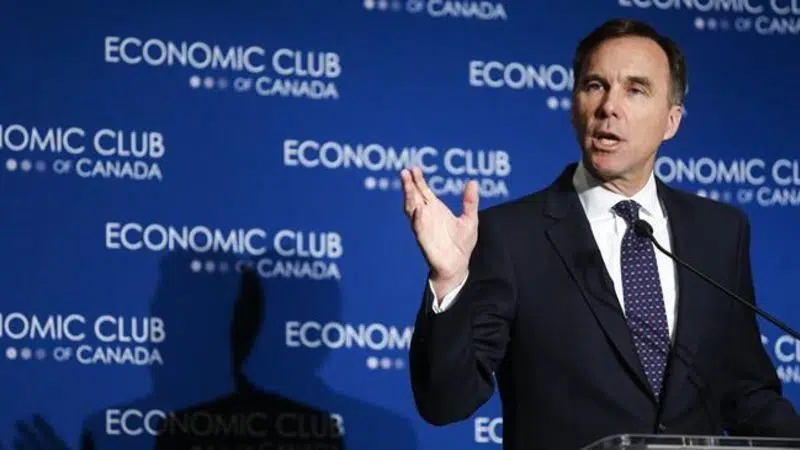
Liberals: TMX pipeline could fund $500 million a year in clean energy projects
OTTAWA — The Liberal government expects to get $500 million a year out of the expanded Trans Mountain pipeline and is promising to spend it all on cleaner sources of energy and projects that pull carbon out of the atmosphere.
Finance Minister Bill Morneau told The Canadian Press in an interview this week that the expanded pipeline is not fodder for negotiating with other parties in the minority government. Rather, he said, it is a crucial piece of the puzzle of financing Canada’s transition to a clean energy economy.
“We purchased it for a reason,” said Morneau. “We now see how it can help us accelerate our clean energy transition by putting any revenues that we get from it into a transition to clean energy. We think that is the best way we can move forward in our current context.”
The Liberal government bought the existing pipeline for $4.5 billion in 2018, in a bid to overcome the opposition of the British Columbia government to the expansion.
